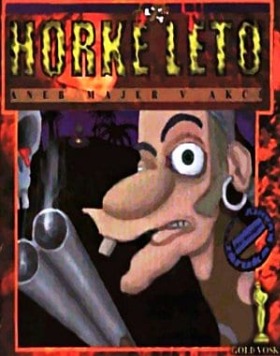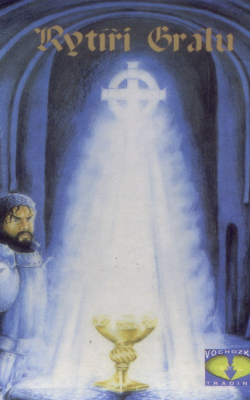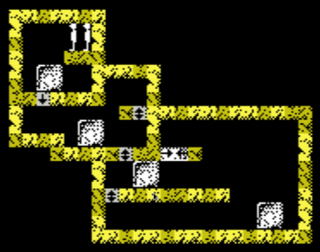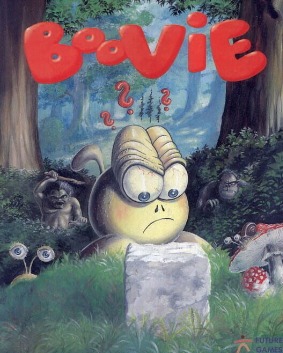
2K Czech, s.r.o. was a Czech video game developer based in Brno, founded as Illusion Softworks in 1997 by Petr Vochozka and Jan Kudera. The company was acquired by Take-Two Interactive in January 2008 and subsequently organised under the 2K label, becoming 2K Czech. The studio was merged into 2K's Hangar 13 in 2017. The developer is best known for creating the Mafia series.
Jaroslav Kolář is a Czech video game designer and producer.
The video game industry in the Czech Republic has produced numerous globally successful video games such as Operation Flashpoint: Cold War Crisis and the subsequent ArmA series, the Mafia series, Truck Simulator series, the Kingdom Come: Deliverance series, the Samorost series and others. There were 300–400 video game developers and around 30 video game companies focusing on video game development in 2014. In 2017, the country had 1,100 developers and 47 companies. Video games are also considered by some experts to be the country's biggest cultural export. The video game industry did not enjoy a good reputation and was unsupported by the state until 2013, when the Ministry of Industry and Trade started to seek ways to kickstart the economy. By 2014, programs were planned to support the video game industry. Another problem is a lack of video game development specialization at any university.
Ramonovo Kouzlo is a Slovakian graphic adventure video game developed by Riki Computer Games and published by Vochozka Trading in 1995 for DOS.

Tajemství Oslího ostrova, known in English as The Secret of Donkey Island, is a 1994 Czech point-and-click adventure video game. Distributed by Petr Vochozka through his company Vochozka Trading in June 1994, it was the first nationally distributed PC game in the country and one of the first Czech games commercially available. A parody of the successful Monkey Island series, the story plays out as if it were a direct sequel to The Secret of Monkey Island, ignoring the continuity of Monkey Island 2: LeChuck's Revenge.

7 dní a 7 nocí is a 1994 Czech adventure game released on MS-DOS through Petr Vochozka's Vochozka Trading brand, and published by Pterodon Software. It was the first Czech video game to use Sound Blaster. The game was released in German as 7 Tage, 7 Nächte and in Polish as 7 Dni i 7 Nocy.
DreamLand: Final Solution was a 1999 Czech adventure game developed and published by Top Galaxy. The game was released on three CDs and with a development price of approximately 10 million crowns, it was until then the most expensive and largest Czech video game.

Dračí historie is a 1995 DOS-based adventure game developed in the Czech Republic by NoSense. It was the first Czech game to include dubbing and was released on CD. The game was last updated in 2006. The dubbing was also translated into Polish and subtitles were translated into English and German.
Messenger of the Gods is a 1998 Czech adventure game developed and published by Future Games. It would be remade in the 2005 as NiBiRu: Age of Secrets, released by Future Games.

Léto s Oskarem is a 1998 Czech adventure game authored by Pavel Širůček and distributed by Vochozka Trading.

Ve stínu havrana is a 1999 adventure game developed by the Slovak company Rainbow Rhino and published by the Czech company CINEMAX.

Horké léto is a point-and-click video game. Developed by Czech studio Maxon, it was published in 1998 by JRC Interactive. A sequel, entitled Horké léto 2, was developed by Centauri Production and published in 1999 by JRC Interactive. A third game Žhavé léto 3 ½ is an action/adventure/driving game developed by Centauri Production and CINEMAX, published by Akella in 2006, which although unable to use the characters and titles of the first two games was related and rounded off what was effectively a trilogy. Žhavé léto 3 ½ was published in English, Spanish, French and German as Evil Days of Luckless John and in Russian as Сорвать Куш.

Rytíři Grálu is a 1996 Czech adventure video game.

Quadrax is a Slovak video game series of freeware games by Cauldron, commencing with Quadrax in 1995.

Boovie is a 1998 Czech puzzle video game by Future Games for MS-DOS released in early 1998. It came out on CD-ROM in January 1999. It is based on two games: Boovie (1994) and Boovie 2 (1998) for ZX Spectrum from the same authors.

Ro(c)k Podvraťáků is a 2006 Czech video game by Centauri Production, based on the film of the same name.
Stíny noci is a 1994 Czech adventure video game developed by Computer Experts and authored by Vladimír Peniska. It was originally distributed by Vochozka Trading. By 1999, the game could be freely downloaded on the Internet.
Muzeum Mrtvol is a 1993 Czech text-based interactive fiction adventure game developed by Vladimír Peníška and Oldřich Křivánek of Computer Experts and published by Vochozka Trading. This genre, known in Czech as "Textovky" were abundant at the beginning of the local video gaming industry, and gradually developed into point and click adventures. The game was released at the same time as another text-based adventure Stíny noci.

Turbo Speedway is a 1995 Czech racing video game developed by World Spy Software and published by Space Interactive for DOS compatible operating systems.












